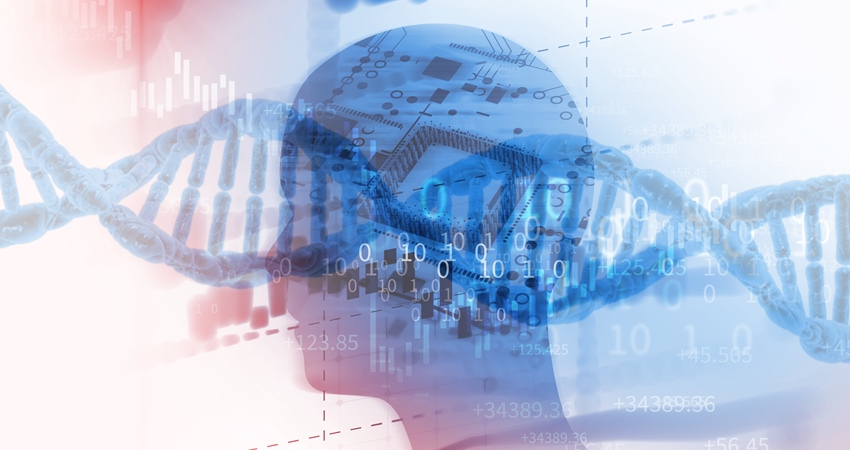The pharmaceutical industry and research institutions are turning towards AI to increase processing, generating better drugs, and budget.
Every major company like Google, IBM, Microsoft, Amazon, Apple, and Uber is becoming highly competitive to grab the most significant piece of the pie in Healthcare Market through AI services.
It’s easy to say that we are going to witness some significant AI breakthroughs.
Whether it’s about cost management, new medical research for diseases like cancer, time optimization, with minimal errors & mistakes. AI and the Internet of Medical Things (IoMT) is already helping people to a great extent in the healthcare sector and will continue to do even more in the near future.
How AI is Transforming the Healthcare Industry
Data mining holds excellent potential for the healthcare system to the systematic use of data and analytics to maximize productivity and to provide the best care at minimum cost.
In this age of Big Data Management of Data is the most extensively used application. The very first step in healthcare is the compilation and analysis of the patient’s and its hospital’s history and medical records.
Cognitive AI bots can incorporate data from pre-op medical records with real-time operating metrics to physically guide and enhance precision.
For example, Google Deepmind health can successfully deliver hundreds of thousands of medical information within no time.
WatsonPaths launched by IBM comprises two cognitive technologies that can be used by the AI algorithm, Watson, to help doctors make more accurate decisions faster and to gather new insights from EMR.
The research findings presented by the STAR(Smart Tissue Autonomous Robot) team demonstrated that Robot’s surgical cuts were incredibly precise, with lesser damage area than the conventional methods.
Personal Assistant: AI bots through our smartphones can help us to get reminders about medicines, solving preferable FAQs, and get more information.
Wearable health trackers – by Garmin, Fitbit, Apple, and many more – monitors activity levels and heart rate. It timely reports our physician and helps us gain medical support.
The doctors also could track and make sure if the medications are being taken on schedule.
On average, 2.6 billion US dollars are spent on each drug that makes it to market by the pharma industry. With the help of AI, there is a considerable amount of drop concerning both, the budget and time.
According to Bloomberg Technology, Microsoft used AI to help doctors in finding the correct treatment for cancer.
With loads of research, processes, and options, it got difficult to choose the right drugs for patients.
So, to help determine which combination of drugs is the most effective, Microsoft is working on a project named “Hanover”.
A machine that also stores all the information and data necessary related to Cancer.
Doctor’s Assistants: With Artificial Intelligence backing them up, doctors can generate a more accurate, quick, and full reference to the rare conditions, diagnoses, and symptoms.
Augmedix is working to lessen the time physicians spend on a computer and focus more on the patient’s care with the help of its Google Glass as a scribe to collect video, audio, and written notes.
It uses natural language processing to assist physicians to make sense of the processed information.
Getting information from patients related to their insurance is generally very tiresome. AI’s New Insurance Checker helps in deciphering, understanding, and verifying health insurance.
This is now attainable with the help of Medical apps like ZocDoc. Powered by AI available in its iOS and Android apps and also for mobile websites.
ZocDoc helps patients to correctly opt for their plan. Moreover, it verifies their insurance info and shares it while taking an appointment.
Artificial Intelligence, along with deep learning, has completely revolutionized image analysis. Most importantly, they are further widening the reach and upgrading the quality of imaging.
Service providers like Butterfly Network, Enlitic, 3Scan, and Baby Labs have found better and cheaper solutions. Moreover, in cases like Ultrasounds and MRIs, the solutions help in tissue analysis in much lesser time.
Moreover, Enlitic can use image recognition to gather the data trunking. It uses radiology images and employs them in unique medical cases.
Future Glimpse
A recent report from Accenture determined the “near-term value” of Artificial Intelligence in the healthcare department to determine how the potential impact of this technology goes up against the upfront costs of implementation.
“When combined, key clinical health AI applications can potentially generate $150 billion in annual savings for the United States economy of healthcare by 2026.”
In conclusion, we may all agree there is a lot of influence of machine learning, and artificial intelligence (AI) in Healthcare.
You May Also Like to Read:
How can Digital Twin Technology Benefit Healthcare?


